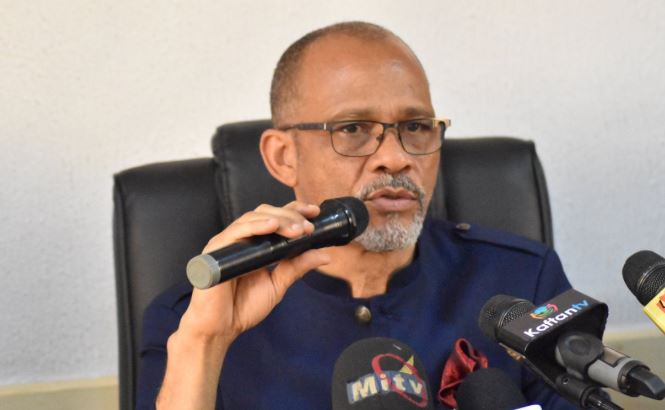Lagos recorded over 650,000 malaria cases in 2020
A total of 657,154 patients with malaria were seen in both private and public health facilities in 2020, the Lagos State Commissioner for Health, Prof Akin Abayomi, has revealed. Giving the statistics to commemorate World Malaria Day, Abayomi revealed that in Lagos, more than 700,000 malaria cases are reported annually. He hinted that malaria accounts […]

Lagos state Commissioner for Health, Prof. Akin Abayomi
A total of 657,154 patients with malaria were seen in both private and public health facilities in 2020, the Lagos State Commissioner for Health, Prof Akin Abayomi, has revealed.
Giving the statistics to commemorate World Malaria Day, Abayomi revealed that in Lagos, more than 700,000 malaria cases are reported annually.
He hinted that malaria accounts for more than 70 per cent of outpatient cases in public health facilities.
- My wife is a sex freak– Man cries to court
- Fresh crisis looms in Chad as issues on Deby’s successor tear family, military apart
Meanwhile, the National Malaria Indicator Survey conducted in 2015, Lagos State Malaria Indicator Survey conducted in 2017 and National Demographic and Health Survey all revealed that the prevalence of malaria is low in Lagos State.
The Commissioner noted that although malaria prevalence is low in Lagos State, the burden is still high as over 700,000 persons are diagnosed with the disease annually.
He explained that malaria is prevalent in vulnerable groups, children under 5 years and pregnant women.
He identified the topography and ecological features of Lagos State; the vast coastal terrain, rapid urbanization and poor drainages as the major predisposing factors that contribute to the transmission of malaria all year round.
He urged the populace to ensure a malaria test is conducted before procuring a malaria drug as it helps to reduce unnecessary use of antimalarial drugs.
“Testing is important as it helps in preventing the emergence and spread of drug resistance and to ensure that antimalarial drugs are reserved for those suffering from the disease.
“It is also imperative that all malaria cases diagnosed are recorded in the appropriate data tools to ensure that all cases of malaria in the State are duly reported.”
Emphasizing the importance of diagnosis, he said the distinction between malaria and COVID–19 is made only after proper diagnosis using appropriate test kits.
“Diagnosis of patients with fever using microscopy or mRDT kit prior to treatment of the disease improves the overall management of patients with fever.
“This is also very important at this time as people infected with SARS–CoV–2 virus which causes COVID–19, manifest symptoms like malaria.
“Before using Artemisinin-based Combination Therapy (ACTs) for treatment of fever, diagnosis either using malaria Rapid Diagnostic Test (mRDT) kit or a microscope must be done,” he said.
